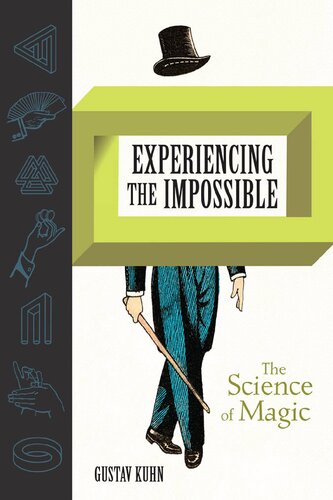

Most ebook files are in PDF format, so you can easily read them using various software such as Foxit Reader or directly on the Google Chrome browser.
Some ebook files are released by publishers in other formats such as .awz, .mobi, .epub, .fb2, etc. You may need to install specific software to read these formats on mobile/PC, such as Calibre.
Please read the tutorial at this link: https://ebookbell.com/faq
We offer FREE conversion to the popular formats you request; however, this may take some time. Therefore, right after payment, please email us, and we will try to provide the service as quickly as possible.
For some exceptional file formats or broken links (if any), please refrain from opening any disputes. Instead, email us first, and we will try to assist within a maximum of 6 hours.
EbookBell Team

4.3
38 reviewsWhat do we see when we watch a magician pull a rabbit out of a hat or read a person's mind? We are captivated by an illusion; we applaud the fact that we have been fooled. Why do we enjoy experiencing what seems clearly impossible, or at least beyond our powers of explanation? In Experiencing the Impossible, Gustav Kuhn examines the psychological processes that underpin our experience of magic. Kuhn, a psychologist and a magician, reveals the intriguing—and often unsettling—insights into the human mind that the scientific study of magic provides.
Magic, Kuhn explains, creates a cognitive conflict between what we believe to be true (for example, a rabbit could not be in that hat) and what we experience (a rabbit has just come out of that hat!). Drawing on the latest psychological, neurological, and philosophical research, he suggests that misdirection is at the heart of all magic tricks, and he offers a scientific theory of misdirection. He explores, among other topics, our propensity for magical thinking, the malleability of our perceptual experiences, forgetting and misremembering, free will and mind control, and how magic is applied outside entertaiment—the use of illusion in human-computer interaction, politics, warfare, and elsewhere.
We may be surprised to learn how little of the world we actually perceive, how little we can trust what we see and remember, and how little we are in charge of our thoughts and actions. Exploring magic, Kuhn illuminates the complex—and almost magical—mechanisms underlying our daily activities.